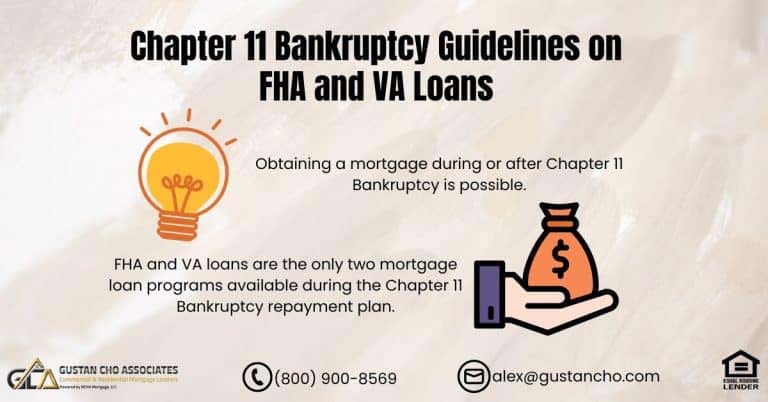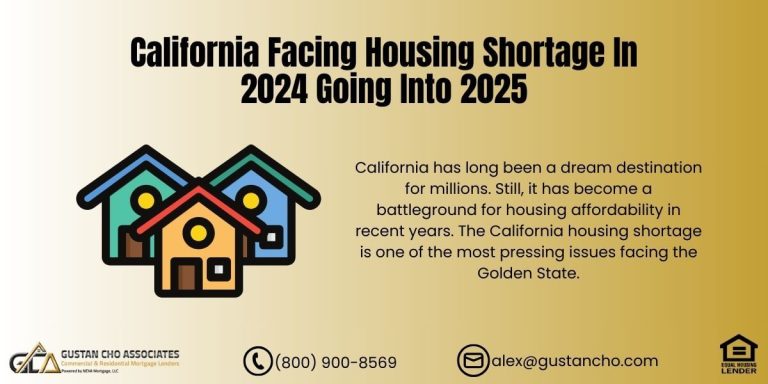The California Mortgage Credit Certificate Program (MCC) is a state initiative to assist first-time homebuyers and qualified veterans achieve homeownership by providing a federal income tax credit. The program’s goal is to make homeownership more accessible for low to moderate income individuals and families by reducing their federal tax liability, thereby increasing their disposable income available for mortgage payments. In this article, we will discuss and cover the California Mortgage Credit Certificate Program Guidelines.
What is Mortgage Credit Certificate or MCC?
An MCC is a special certificate from the state or local government that lets qualified homebuyers get a tax break each year by giving them a credit for part of the mortgage interest they pay. Unlike a tax deduction that just lowers your taxable income, a tax credit actually cuts down the amount of tax you owe—dollar for dollar. The mortgage credit certificate program in California normally provide 20% tax credit of the paid annual mortgage interest.
Great news for California Home Buyers.
The California Housing Agency is now joint venturing with counties across the state of California. This partnership is so all California residents who want to become homeowners in the state of California can be eligible to the California Mortgage Credit Certificate Program, also called the MCC.
Credit is offered to a homeowner which can decrease the homeowner’s liability of their federal income tax. By reducing the homeowner’s federal tax liability, this ensures that the homeowner has extra net household income.
They can allocate the savings towards their monthly housing payment. The goal and purpose for the California Mortgage Credit Certificate Program, MCC, is to promote first time home buyers to purchase a home. To enable home buyers to make the housing payment affordable. It is done by converting a percentage of the homeowner’s annual mortgage interest expense into a direct dollar for dollar federal tax credit on the homeowners individual U.S. federal income tax returns.
Save on Your Mortgage with a Mortgage Credit Certificate (MCC)!
Apply Now And Get recommendations From Loan Experts
What are the Benefits of the MCC Program?
One of the benefits of the California Mortgage Credit Certificate program is the increased affordability by reducing federal tax liability. The MCC efficiently increases the net income of the homebuyer’s that makes monthly mortgage payments more manageable. The additional income from the tax credit can improve debt-to-income ratios. It potentially enables buyers to get approved for larger loans. Also, the tax credit can be claimed annually for the life of the original mortgage, as long as the homeowner continues to meet the program’s requirements.
California Mortgage Credit Certificate Program Eligibility Requirements
To qualify for the California MCC Program, applicants must meet the following conditions:
- First-Time Homebuyer Status: Applicants must not have owned a principal residence in the past three years. This requirement is waived for purchases in federally designated targeted areas and for qualified veterans.
- Income Limits: Household income must not exceed 115% of the area median income, except in targeted or high-cost areas where higher limits may apply.
- Purchase Price Limits: The property cannot exceed 90% of the average area purchase price over the past 12 months unless the home is in a targeted area where higher limits may be permitted.
- Owner Occupancy: The home must be used as the buyer’s primary residence for the duration of the MCC.
Property Requirements
Now if the borrower has qualified and met all of the necessary borrower requirements for the California Mortgage Credit Certificate Program, they now need to have the subject property meet the minimum standard requirements in order to secure the MCC Program. The program applies to various types of residential properties, including single-family detached homes, condominiums, and townhouses. Manufactured homes may also be eligible if they meet specific requirements. The property must be located within the program’s jurisdiction, which varies by county and municipality.
Here are more property eligibility requirements:
- The property’s sales price cannot be more than the allowable sales price limit in the particular county
- The lot size is limited to a maximum of a five-acre parcel
- Only single-family detached properties are allowed
- Detached homes that are within a PUD can qualify
- A PUD is a home in a planned unit development
- The subject property can be a condo or an attached property unit within a planned unit development, PUD
- Guest homes and in-law apartments and/or home may be eligible for California MCC Program
The subject home needs to meet the guidelines and requirements of the California Finance Housing Authority, the lender, and the mortgage insurance company and/or guarantor of the mortgage.
California Mortgage Credit Certificate Program Eligible Counties
The California Mortgage Credit Certificate Program is available in every county where a Mortgage Credit Certificate Program is not currently available via a California Housing Finance Authority county at the time the mortgage loan is being originated.
How To Apply For California Mortgage Credit Certificate Program?
The California Housing Finance Authority is not a mortgage lender. All California homebuyer assistance loan programs are offered by private lenders who are approved by CalHFA. Gustan Cho Associates Mortgage Group participates in most first-time mortgage loan assistance programs for first time home buyers throughout the United States.
Application Process
Find a Participating Lender: Applicants must work with a lender approved by the MCC program. A list of participating lenders is typically available through the local housing authority or program administrator.
- Pre-Qualification: The lender will assess the applicant’s eligibility based on income, purchase price limits, and first-time homebuyer status.
- Home Purchase: Once pre-qualified, the applicant can proceed to find a suitable home within the program’s guidelines.
- MCC Application: The lender will assist in completing and submitting the MCC application to the program administrator, usually before the loan closes.
- Issuance of MCC: After closing and upon approval, the program administrator will issue the Mortgage Credit Certificate to the homeowner.
Claiming the Tax Credit
Homeowners can claim the MCC tax credit each year by completing IRS Form 8396 and attaching it to their federal tax return. The credit is equal to 20% of the annual mortgage interest paid. The remaining 80% of the mortgage interest can still be claimed as a tax deduction.
Recapture Tax
Suppose the home is sold within nine years of purchase, and the homeowner’s income has increased significantly. In that case, a recapture tax may be imposed. This tax is designed to recoup some of the benefits received from the MCC program. However, certain conditions must be met before the recapture tax can be applied, and many homeowners may not be affected.
Conclusion
The California Mortgage Credit Certificate Program offers first-time homebuyers and qualified veterans a valuable opportunity to make homeownership more affordable through significant tax savings. Eligible individuals can enhance their purchasing power and achieve long-term financial benefits by understanding and meeting the program’s guidelines.
Looking to lower your tax burden while buying a home?
Apply Now And Get recommendations From Loan Experts
Frequently Asked Questions (FAQs)
1. What is the California Mortgage Credit Certificate Program?
The California Mortgage Credit Certificate Program gives eligible homebuyers a federal tax credit for part of the mortgage interest they pay each year, helping reduce their overall tax bill.
2. How much can I save with an MCC?
You can get a tax credit of up to 20% of your annual mortgage interest. This can mean thousands in savings over the life of your loan.
3. Who qualifies for the California Mortgage Credit Certificate Program?
You must be a first-time homebuyer (not owned a home in the last 3 years), meet income and purchase price limits, and live in the home as your primary residence.
4. Do I need to live in a certain area to qualify?
Yes. The property must be in a participating county or city that offers the MCC program. Some areas are also designated as targeted areas, which may have higher income limits.
5. Can veterans qualify without being first-time homebuyers?
Yes. Veterans that are qualified are exempted from the first-time homebuyer requirement under the Heroes EARNED benefits.
6. Can I use the MCC with any type of mortgage loan?
Yes, the MCC can be used with most mortgage types, including FHA, VA, USDA, and conventional loans, as long as the lender is approved by the MCC program.
7. How do I apply for the California Mortgage Credit Certificate program?
You must work with a participating lender who will help you apply for the MCC when you apply for your home loan—before closing.
8. How do I claim the MCC tax credit each year?
You’ll file IRS Form 8396 with your federal tax return to claim the credit for the mortgage interest you paid.
9. Will I owe anything if I sell the home early?
Possibly. If you sell within 9 years, you might owe a recapture tax depending on your income and how much your home has increased in value—but not everyone ends up owing it.
10. Can I still deduct mortgage interest on my taxes?
Yes. You can deduct the remaining mortgage interest (typically 80%) on your tax return. The MCC only affects the portion you claim as a credit.
For more information about qualifying for a home loan using the California Mortgage Credit Certificate Program, please contact us at Gustan Cho Associates at 800-900-8569 or text for a faster response. Or email us at gcho@gustancho.com. We are available 7 days a week, evenings, weekends, and holidays.
Great option for first-time homebuyers looking to reduce their financial load
Apply Now And Get recommendations From Loan Experts










